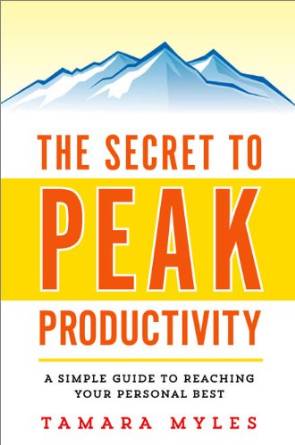How to Increase Productivity With These Four Decision Categories
Scott begins most of his work days the exact same way. He just starts. He sits down at his desk, opens up his email and lets the day take him where it goes.
Yet Scott’s biggest complaint is he doesn’t feel like he gets anything done. He’s also frustrated because he feels like he does “everything” but doesn’t know another way.
Planning is one of those activities we know we should do but when it comes down to it few people really do it.
I would compare planning to eating vegetables. Everyone knows they should eat them but when it comes right down to eating them, it often doesn’t happen.
Scott represents most busy professionals but a few minutes of planning would dramatically change the course and the results of his day.
Time management simply comes down to choice management. How we choose to use our time is ultimately how our lives turn out.
Planning your day is bigger than what appointments, meetings, or conference calls you have within your day.
Part of planning is learning what to do and what not to do within your day. It’s making decisions ahead of time on each element that comes your way. How?
I came across a book called The Secret to Peak Productivity by Tamara Myles. It was “chucked full” (technical term) of practical advice specifically on personal organization. She deserves credit for the four concepts below.
There are four decision categories when planning our day:
1. CHOOSE – Identify What is Important and Essential For You to Do
You get to choose by looking at your day or week ahead where you should spend your time.
What may feel like a waste of a few minutes to sit down and plan, ultimately saves you time in the long run and allows you to get the right things done at the end of the day.
You should know what is the most important. But if you don’t taking the time to plan even for a few minutes will allow you to know and determine what is important.
Choose is pro-active when many spend their day reacting. This requires intention and thought which happens ahead of time. Take control of your day by choosing.
You could apply “choosing” with every email. Should I look through every junk email? This alone could save you time within your day.
You get to choose what is important and essential for you every single day. It could be in as short as five minutes. Read THIS.
2. REMOVE – You Can Take Things Off Your List by Saying “NO.”
You can decide not to do some things. Crazy, right?
Do you realize you don’t have to do absolutely everything that comes your way?
And do you realize most people apply this principle very easily TO YOU consciously or unconsciously all of the time?
There are some emails, meetings, conference calls that are simply not the best use of your time. In fact they take away from your time.
Having good boundaries within your day is critical to being productive and successful. And this is done by saying no and removing unnecessary items within your day.
It’s difficult at first to say no and set boundaries but so freeing when applied. And it’s amazing how much time can be freed up when you remove the unneeded within your day.
3. WAIT – You Can Push Back Doing Tasks or Activities Until the Next Day, Week, or Month
You’ve heard the phrase in life, “timing is everything” and this can be applied in planning as well.
Something may be important but needs time to either develop or just not important right now.
You can choose to wait and come back to it when the timing is right. Just make sure you know how to find it when you need to do it otherwise you’re wasting valuable time just looking for it.
One of the best ways to work through what can wait and be able to track it later is with the Master List. Read about it HERE.
Determine what really needs to be done right now. Everything else can wait.
4. DELEGATE – You Can Give It to Someone Else Better Suited for the Task
Do you want to know something freeing? There is someone out there who actually enjoys doing what you don’t like or even detest doing? Crazy! I know, right?!
Depending upon your level of responsibility or role in a team or organization, part of your planning needs to be delegating “something to someone” else.
If you’re self-employed, this could mean outsourcing. There are certain tasks that are important, just not important for YOU TO DO.
It would be worth the small amount of money to give to someone else to you can choose to invest your time in things only you can do and produce greater long term results.
Delegating is saying the task is important, just not for you to do it. This takes discernment and possible follow-up but worth it in the long run.
Closing Challenge…
These four decision categories are not brand new ideas, just not often applied.
Could you just imagine how differently your day could look at the end?
Motivated, busy professionals need to apply these ideas to become more productive and ultimately more effective. Try applying this concept today and see what happens.
Closing Question…
What is at least one of these four decision categories you could implement today?



Leave a Reply